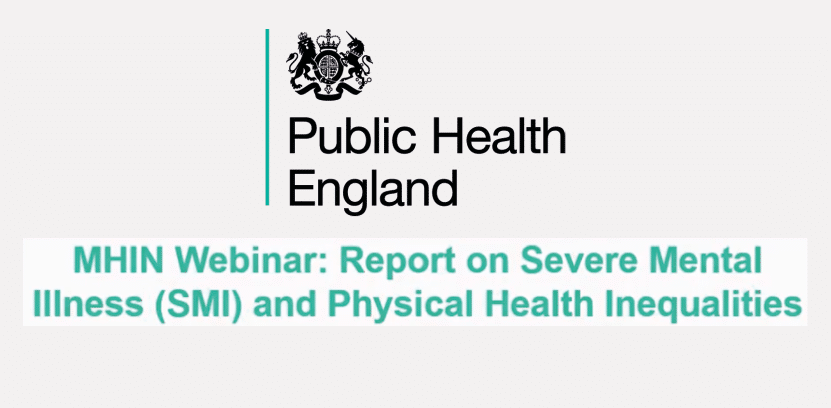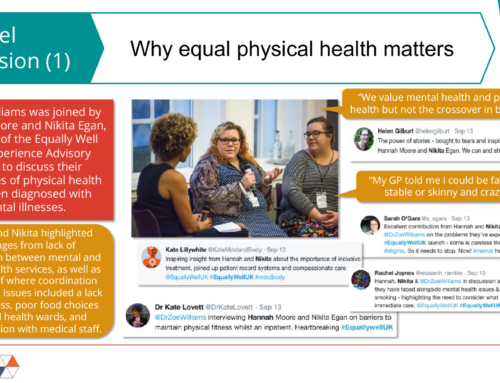Project Description
PHE’s National Mental Health Intelligence Network (NMHIN) webinar on their recently published report on Severe Mental Illness (SMI) and Physical Health Inequalities.
In this webinar, Gabi Price (NMHIN Head of Intelligence), will take you through the report’s key findings on the physical health inequalities people with SMI are facing and also explain how you can apply the methodology from the report to local primary care data to understand the physical health inequalities of people with SMI in your local area. We will also be joined Andy Bell (Centre for Mental Health) and Hannah Lewis (Rethink) from the Equally Well UK initiative, which seeks to promote and support collaborative action to improve physical health among people with a mental illness, they will give an overview of the aims and current work of the initiative.
Who is this report for?
This webinar is for:
· local organisations that plan, manage and deliver different stages of clinical and preventive care for people with SMI
· local organisations that, along with mental health, manage and treat physical health conditions in people with SMI
· national organisations that lead and develop strategy, policy and guidance on people with SMI
Overview of the SMI and Physical Health Inequalities report:
This report is part of a broader programme of work within PHE and across the Mental Health system that is focused on the physical health of people with SMI. The report analyses data from a primary care sample database called THIN, and examines:
· the recorded prevalence of SMI by age, sex and deprivation in England
· the proportion of people with recorded SMI experiencing co-morbidities and multi-morbidities in England
· inequalities in the co-morbidities and multi-morbidities between SMI and all patients by age, sex and deprivation in England
The purpose of this report is to:
· increase the understanding of physical health conditions in people with SMI
· add to the intelligence on the inequality experienced by people with SMI
· provide intelligence that allows the health and care system to focus on key areas for intervention, to reduce premature mortality among people with SMI
What is new about this report?
· There is currently no national level access to detailed primary care data to help understand the physical health needs of people with SMI, the THIN data set is the best available route to assessing the primary care contribution to this important topic.
· This report adds considerably to existing intelligence as it looks in detail at the physical health comorbidities of people with SMI across a wide range of conditions
· Studies have been conducted in the past which have highlighted that people with SMI have increased rates of physical illness compared to the general population. This report not only confirms this using primary care data it considers 10 physical conditions in detail and it quantifies the level of inequality by age, sex and deprivation.
· Whilst this work reports on national data, the methodology provided in the technical report allows local areas to replicate this work for their populations.
Please note that we are sharing this work as an external resource so not all views in the document are our own.



